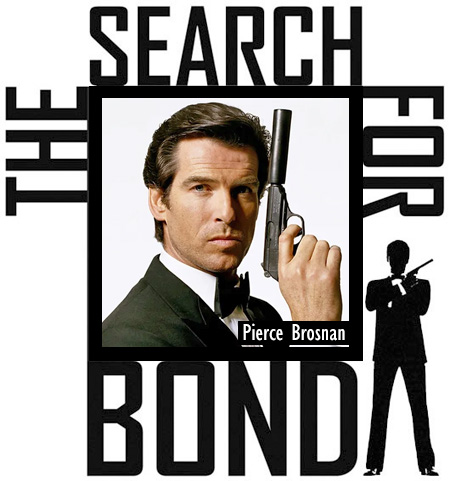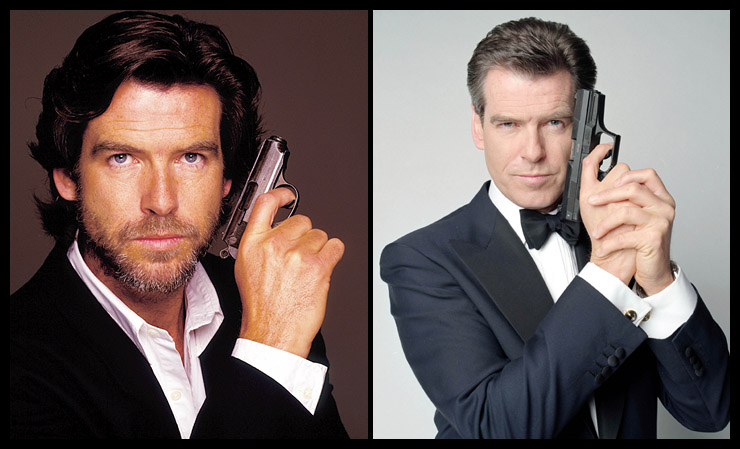 |
|
ABOVE: (left)
The first publicity photo of Pierce Brosnan on his
announcement as the new Bond actor, by celebrity
photographer Terry O'Neill (right) Brosnan as Bond in Die
Another Day (2002). |
|
|
|
Things changed
dramatically in 2005 when the highly successful back to basics Batman
Begins altered the thinking of EON executives. Did Bond himself now
require a re-boot. But replacing Brosnan was going to be an almighty task.
Even though his movies never reached the artistic plateau of Connery’s
Goldfinger or Moore’s The Spy Who Loved Me, or even Dalton’s
The Living Daylights, Brosnan himself was always worth watching and
his movies had made money – serious money. |
|
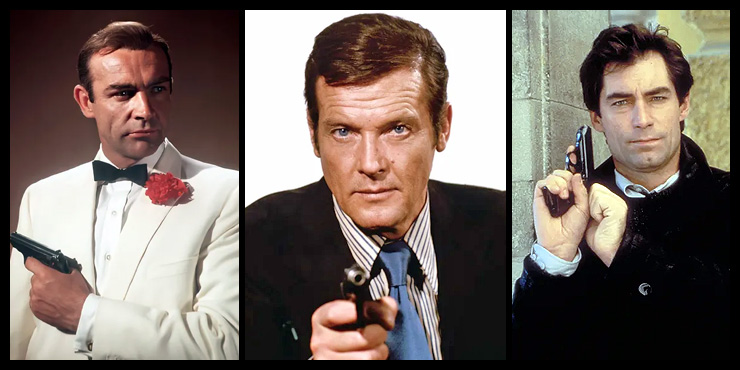 |
|
The trick in finding a
new Bond was casting an actor who would appeal to women’s taste while at
the same time be respected by the men. This is where Brosnan, like Connery
before him, scored so highly. Any new actor also had to have real screen
presence and charisma. Star quality didn’t necessarily mean being a huge
star; let’s face it, James Bond is far bigger a character than anyone who
has ever played him, but obviously the winning candidate needed some kind
of track record as a performer. He also needed to be British and in his
mid to late 30s, someone who could take on the role for 15 years and
really make it his own. It was a balancing act, not least in finding an
actor at the right moment in his career to take on Bond. Connery was
essentially a ‘B-Movie’ actor when he was cast, Moore a TV star, and
Brosnan a supporting player at best in movies. That ruled out already
major players like Jude Law, Ewan McGregor and Hugh Grant, who’d been
linked to the role of Bond for years. |
|
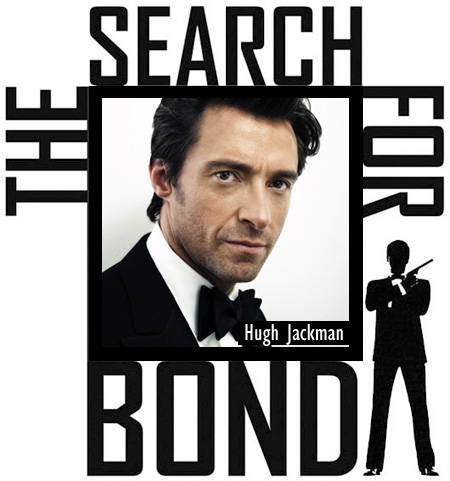 |
|
What about Hugh Jackman?
Former stunt man Vic Armstrong, who in his capacity as second unit
director worked on the Brosnan Bond films, had also worked with Jackman on
a little movie called Kate and Leopold (2001). “This was before the
X-Men films, before anybody really knew who he was. I’d certainly never
heard of him. But after returning home I went straight up to Pinewood and
saw Barbara Broccoli. ‘Look,’ I said. ‘I know Pierce has got one or two
more Bonds in him but I’ve seen the next James Bond, Hugh Jackman, he’s
fantastic. He’s got all the right characteristics, he’s Australian, so he
qualifies, and Australian’s have a great dry sense of humour that’s very
British. Plus he’s a good looking guy, great character and great fun to
work with. I think he’s just magnificent.’ But by the time his name was
mentioned his career had advanced too much. He’d done X-Men and had
proved himself to be a bigger star than somebody that needed to do Bond.
It wouldn’t have been a good career move, but back in those days he
would’ve made a terrific Bond.” |
|
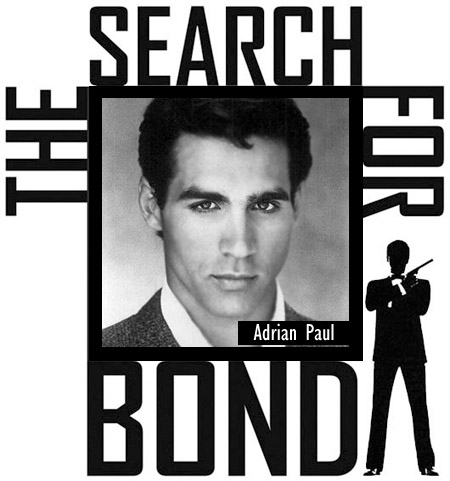 |
|
According to Parade
Magazine, when they asked their readers in June 2004 to vote for who
should be the next James Bond the overwhelming winner was - Adrian Paul,
the British born star of the American TV series Highlander. It was
a name not previously mentioned before, although it wasn’t the first time
Paul had been connected with the Bond job. “I did an interview with the
producers years ago,” he says. “The first time Pierce Brosnan was selected
for the role and couldn’t play it due to his commitments on Remington
Steele, but I was too young then. So, it has always been something I
thought it would be fun to play.” |
|
A Bond fan since he was a
kid watching Sean Connery, Paul was both delighted and taken aback when
after the Parade Magazine survey his fans began an internet
petition to have him installed as the new James Bond. “But this time
around I wasn’t interviewed or even contacted by the producers,” says
Paul. “Most of the buzz came from the general public. I think I have been
put in an odd position. Most people think I am American or something
in-between because most of the roles I have played over the years have
been geared toward the American audience, so maybe that had something to
do with it or maybe they were going after bigger names for the role.”
Adrian Paul moved to
America in the mid-80s; born in London in 1959 he had first become a
model, then a dancer and choreographer in Europe. Shortly after his
arrival in America he won his first TV role as a Russian ballet dancer on
the mega soap The Colbys. More guest appearances on television
followed and also film roles before he was cast in 1992 in the role that
would bring him international fame, that of Duncan MacLeod in
Highlander. The fantasy TV series brought Paul huge cult celebrity
status, but if the 007 role had been his, how would the actor have
approached and played it. “I always believed that Bond had qualities that
set him apart from other legendary figures; a tongue in cheek humour,
style, danger, panache and daring. There have been many Bonds with some of
these qualities but not all of them. I think I would have looked into
incorporating all of them. Every actor who has played Bond has chosen a
different aspect of him and today Daniel Craig’s take on Bond is really
good, he’s given the character a new twist.” |
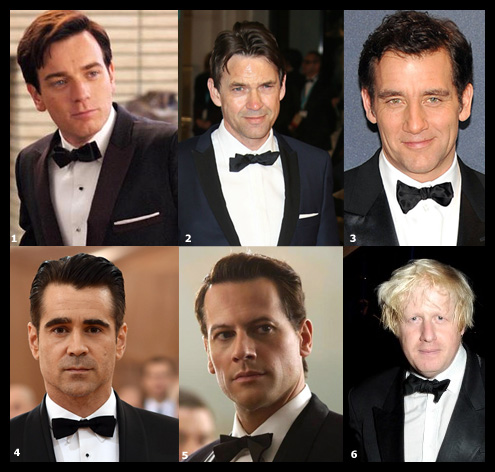 |
1. Ewan McGregor 2.
Dougray Scott 3. Clive Owen 4. Colin Farrell 5. Ioan Gruffudd
6. Boris Johnson. |
|
|
|
Naturally the bookmakers
were only too happy to perpetuate the search for Bond media circus, and
William Hill announced that Scotsmen Ewan McGregor and Dougray Scott were
leading the race, followed by Clive Owen, Colin Farrell, Hugh Jackman and
Ioan Gruffudd. Tory MP Boris Johnson was a not unreasonable 500/1.
With such high profile
contenders filling column inches, enter a complete unknown - Roger Barton
Smith, who decided one day, despite no previous acting experience, to
become James Bond and ended up spending £200,000 in pursuit of that
seemingly impossible goal. It’s an extraordinary chapter in the search for
Bond and a testament to one man’s hopes and dreams. |
|

